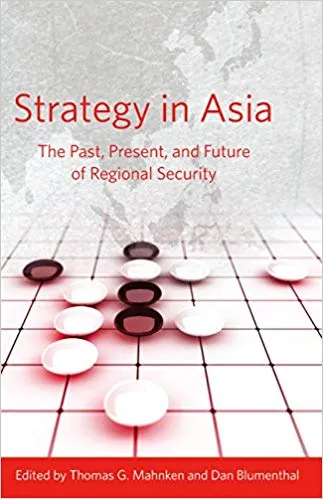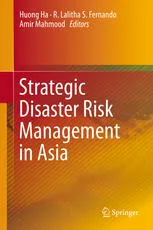Strategy in Asia: The Past, Present, and Future of Regional Security
4.5
Reviews from our users

You Can Ask your questions from this book's AI after Login
Each download or ask from book AI costs 2 points. To earn more free points, please visit the Points Guide Page and complete some valuable actions.Related Refrences:
Introduction to "Strategy in Asia: The Past, Present, and Future of Regional Security"
Asia has emerged as the cornerstone of global geopolitics, commanding the attention of policymakers, strategists, and scholars worldwide. In "Strategy in Asia: The Past, Present, and Future of Regional Security", Thomas G. Mahnken and Dan Blumenthal provide an in-depth analysis of the complex security environment of the Asia-Pacific region. This book is an essential read for anyone seeking to understand Asia's multifaceted strategic dynamics and their implications for the future of regional and global stability.
The authors meticulously dissect key historical, strategic, and policy developments in Asia, shedding light on how the past continues to influence contemporary security challenges. They outline how regional powers such as China, India, and Japan are reshaping the balance of power while exploring the role of global actors like the United States in shaping the region's future. The book combines historical insights with forward-looking assessments, offering a nuanced perspective that bridges the past, present, and evolving future of Asia's security architecture.
Summary
"Strategy in Asia" provides a comprehensive examination of the geopolitical and security complexities of Asia. It is divided into several thematic sections that address the evolution of security strategies, regional power dynamics, and the intersection of economics, politics, and military concerns.
The book begins by exploring the historical foundations of Asia’s security environment, drawing on examples from ancient and modern history. These lessons set the stage for a deeper analysis of Asia's post-World War II security order and the evolving role of the United States as a stabilizing force.
It then transitions to examining China’s rapid rise and its impact on regional and global security structures. The authors delve into the strategic competition between the United States and China, the repercussions for smaller Asian countries, and the broader implications for the global order. They also highlight the strategies of other key actors, including India’s increasing assertiveness and Japan's cautious re-alignment toward a more proactive security posture.
In the final sections, the book looks to the future, identifying potential flashpoints across the region, such as the Taiwan Strait, the South China Sea, and the Korean Peninsula. The authors address critical issues like deterrence, alliance dynamics, and non-traditional security threats, offering strategic recommendations for policymakers and analysts.
Key Takeaways
- Historical context is essential for understanding Asia's modern strategic challenges.
- China's rise is reshaping regional security and necessitating new strategies from other major powers.
- The role of the United States remains critical as a counterbalance to emerging security threats in Asia.
- Strategic competition between major powers could escalate into conflict over key hotspots if not managed carefully.
- Future security strategies must address both traditional military concerns and non-traditional challenges like cyber and economic security.
Famous Quotes from the Book
"One cannot understand Asia’s present or shape its future without first grasping the contours of its past."
"Asia is not merely a geography; it is a crucible of competing visions and the primary testing ground for strategies of global consequence."
Why This Book Matters
Asia’s geopolitical importance is undeniable, making it imperative to understand the region's evolving strategies and security dynamics. This book transcends traditional analyses by offering a comprehensive, multi-dimensional approach to understanding the factors shaping Asia's future. It stands out for its depth of historical knowledge, its nuanced understanding of geopolitical trends, and its actionable recommendations for maintaining peace and promoting security in an increasingly volatile region.
The insights provided in "Strategy in Asia" are invaluable for academics, policymakers, and anyone interested in global security. As the balance of power shifts toward Asia, the themes tackled by Mahnken and Blumenthal will only continue to grow in relevance, underscoring the book's significance in today’s world and for future generations.
Free Direct Download
You Can Download this book after Login
Accessing books through legal platforms and public libraries not only supports the rights of authors and publishers but also contributes to the sustainability of reading culture. Before downloading, please take a moment to consider these options.
Find this book on other platforms:
WorldCat helps you find books in libraries worldwide.
See ratings, reviews, and discussions on Goodreads.
Find and buy rare or used books on AbeBooks.
1397
بازدید4.5
امتیاز0
نظر98%
رضایتReviews:
4.5
Based on 0 users review
Questions & Answers
Ask questions about this book or help others by answering
No questions yet. Be the first to ask!













